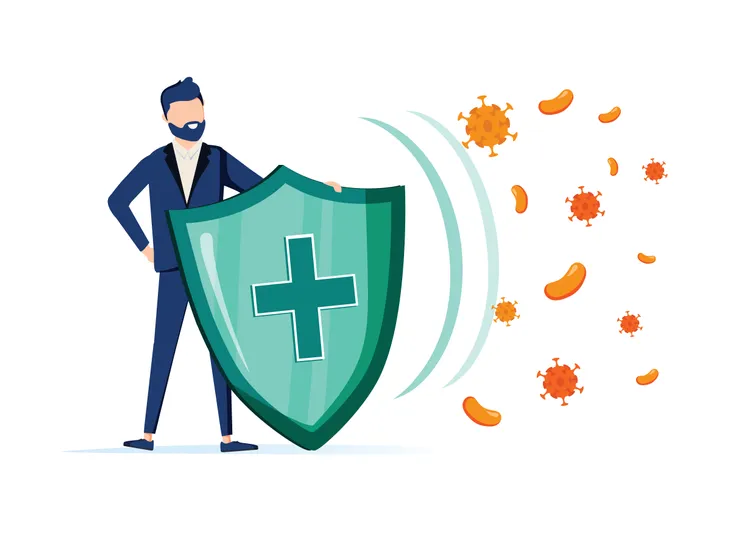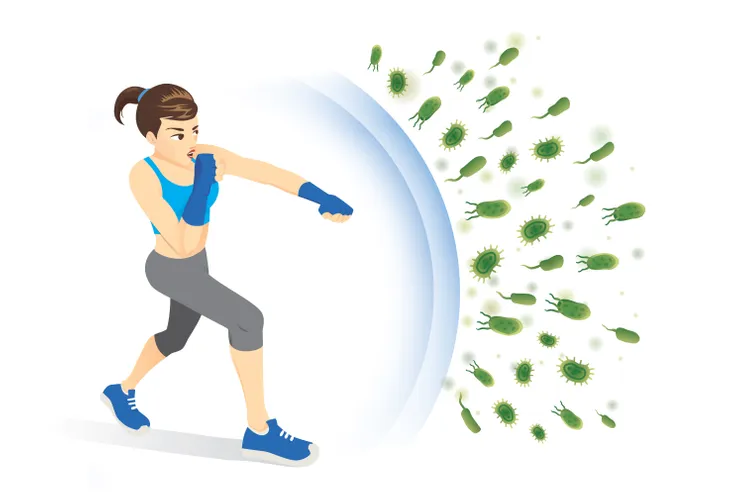Modern science is an amazing thing. With it, society has been able to combat serious infectious diseases. With the help of vaccines, of course. There are many vaccines out there, and whether they’re right for you is a discussion you’ll have to have with your doctor. But the goal of the vaccine remains the same, to help stop the spread of infectious disease and prevent serious illness.
But one concern many individuals have with vaccines is their side effects. While every vaccine can have its own list of side effects, most share a list of common (yet mild) side effects. This is exactly what we’ll explore today. Here are the common side effects of vaccines, and their treatments!
How Do Vaccines Work?
Before we get into the side effects, let’s first take a look at how vaccines work. The Center for Disease Control and Prevention (CDC) explains that vaccines contain the same germs that cause the disease. “But they have been either killed or weakened to the point that they don’t make you sick,” says the source.
They also note some vaccines contain only a fraction of the germ. Once the vaccine is administered, it stimulates your immune system to create antibodies. This is what helps you develop immunity to that particular disease.
Who Should Get Vaccinated?
Vaccines are a wonderful medicine because, unlike treatments, the vaccine’s sole purpose is to prevent disease in the first place. So who should get vaccines?
It’s important to point out there are many vaccines out there, including vaccines for the general public, infants, women, seniors, and so on. Whether they’re right for you is a discussion you should have with your doctor.
Common Side Effects of Vaccines
The good news is that the most common side effects of vaccines are mild. Not everyone will experience them either. Nonetheless, it’s important to be aware of any potential side effects.
In rare cases, vaccines can cause severe side effects such as an allergic reaction. Let’s take a look at the common and rare side effects of vaccines.
Sore Arm
One of the most common side effects of a vaccine is pain or tenderness at the injection site. This can cause a sore arm, also known as a local reaction.
Some of the pain comes from your muscle reacting to the vaccine liquid after it was injected into your arm. But this isn’t a side effect you should worry about.
How to Treat a Sore Arm
If you do experience a sore arm, keep your arm moving throughout the day. You can also try applying a cool, wet cloth to the area to provide some relief.
Finally, you may also find relief by taking pain-relieving medication. Some examples of these are ibuprofen, aspirin, or acetaminophen.
Mild Fever
Another common side effect of vaccines is a mild fever. An oral temperature above normal (98.6-degrees Fahrenheit or 37-degrees Celsius) but lower than 100.4-degrees Fahrenheit (38-degrees Celsius) is considered a low-grade fever.
Keep in mind, a fever of 103-degrees Fahrenheit (39-degrees Celsius) or higher is a cause for concern. While it’s never fun to experience a fever, it is a sign that your body is doing its job and ramping up the immune system in response to the vaccine.
 Prostock-studio / Shutterstock
Prostock-studio / ShutterstockSymptoms of a Fever
Along with an elevated body temperature, a fever can also have accompanying symptoms. These include shivers, chills, and feeling hot and cold.
A fever may also cause fatigue, headaches, body aches, and sweating. If you experience any of these symptoms, make sure you take time to rest and don’t overdo it. Your body needs time to restore and heal!
How to Treat a Fever
The good news is most mild fevers can be treated at home! Some natural fever relievers include taking a warm bath, drinking lots of fluids, and getting plenty of rest!
You may also find some relief by applying a cool compress to your forehead. If these natural remedies don’t provide enough relief you can try taking a fever-reducing medication such as acetaminophen or ibuprofen.
Headache and Treatment Options
If you experience a headache after your vaccine, don’t fret! This is another common side effect. Your headache may also be accompanied by tiredness and this is common too.
The good news is your headache shouldn’t last for longer than a day or two. To treat the headache you can apply a cool compress to your forehead or take a pain-relieving medication such as acetaminophen or ibuprofen. Note, pregnant women should not take ibuprofen.
Fainting
Some individuals faint after medical procedures and this includes vaccinations. If this is a regular occurrence for you, then you may faint after your vaccine. You should also notify your doctor before they administer the vaccine so they’re aware that this is common for you.
Symptoms that could indicate you’re about to faint include dizziness, light-headedness, a pale face, perspiration, restlessness, heightened anxiety, vision changes, or ringing in the ears. These symptoms can then lead to a collapse. If you begin to experience any of these symptoms after your vaccine, tell the doctor or nurse who administered your vaccine.
Serious Side Effects of Vaccines
A serious side effect of a vaccine is an allergic reaction. Even though an allergic reaction is possible, it’s very rare. The U.S. Department of Health and Human Services (HHS) explains, “For example, if 1 million doses of a vaccine are given, 1 to 2 people may have a severe allergic reaction.”
Signs of an allergic reaction include swelling in your face and throat, a rash on your body, a fast heartbeat, dizziness and weakness, and difficulty breathing. If you experience any of these symptoms, get to your nearest hospital immediately or call for emergency help.
If you’re concerned about having an allergic reaction to a vaccine, talk to your doctor.
What Do Side Effects Mean?
You can find comfort in knowing that most side effects are a sign that your body is starting to build immunity. This means your body is gearing up to protect you from that particular disease.
If you do experience mild side effects from a vaccine, don’t worry. Even though they can happen, it doesn’t happen to everyone. Better yet, if you do experience side effects they should clear up within a few days.
Reasons to Get Vaccinated
While side effects may make you hesitant about vaccines, you should know most vaccines only have mild side effects. You can talk to your doctor about all the potential side effects of the particular vaccine you are receiving.
The National Foundation for Infectious Disease lists some great reasons to get vaccinated including the prevention of infectious diseases, keeping you healthy, and keeping your loved ones safe and healthy too. If you’re not sure which vaccines you should get, or if you’re up to date on vaccines, book an appointment with your doctor.















